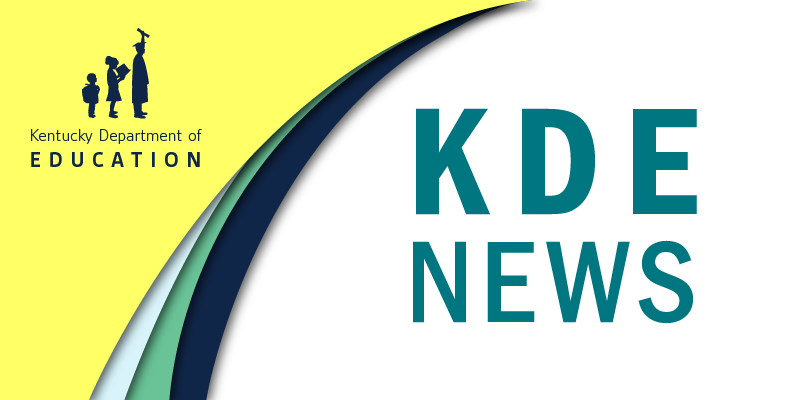 At the meeting of the Kentucky School for the Deaf (KSD) Advisory Board on Nov. 9, KSD Sign Language Coordinator Billy Gully Jr. shared data from 2018 to the current school year on the Sign Language Proficiency Interviews (SLPI) administered to students, teachers and staff.
At the meeting of the Kentucky School for the Deaf (KSD) Advisory Board on Nov. 9, KSD Sign Language Coordinator Billy Gully Jr. shared data from 2018 to the current school year on the Sign Language Proficiency Interviews (SLPI) administered to students, teachers and staff.
SLPI involves a one-to-one conversation in American Sign Language (ASL) between an interviewer and interviewee to assesses communication skills and provide support for continued growth. The interviews are recorded and rated by a team using the SLPI: ASL rating scale, which has 11 categories, from No Functional Skills to Superior Plus. KSD strives for all staff and students to reach the eighth stage, which is Advanced.
Data from the 2018–2019 school year showed an expected amount of progress. In 2020, because of COVID-19 mitigation strategies, all interviews moved to a virtual format – a first for KSD. Gully said this could have impacted scores from the 2020- 2021 school year and the current school year.
“When you put that stress on a student, that is going to impact them,” he said.
Several factors can already impact where students land on the rating scale, such as learning a sign language style different than ASL, inefficient or no exposure to ASL at their home or having a different interviewer than in previous years.
“Just because we are using sign language here every day does not mean that our students’ language is growing every day,” he said. “It really can vary depending on the individual, just like test scores can vary, just like learning in the classroom can vary. Their interactions with individuals are different, too. Sometimes [students] may be impacted by learning styles or sign styles.”
Scott Haun, KSD board chair, said he understands from personal experience why the scores from last school year may have shifted from the growth trend in 2018, as many virtual formats are not deaf friendly.
“COVID had a major impact on the scores when you think about all the things students had to go through,” he said.
Though students struggled at the beginning of the pandemic, Gulley is optimistic that the 2021-2022 scores “will look pretty good” in terms of improvements among students and staff.
“One level takes three, four, sometimes five years. You can’t go one year from no functional skills to superior. This takes time,” he said. “This [data] is pretty constant with what we except to see from our students, and the growth over the years based on students coming and going and the different backgrounds of the students.”
As a native ASL speaker himself, Gulley said he understands the value of students’ ability to communicate their thoughts and needs to their families, friends and peers.
“Language is so important. If you can’t communicate your basic thoughts or needs, then what are we doing for our students?” he said. “I want them to be able to communicate, at least to express how they are feeling. Some of them have that at home, and it’s amazing, but some of them can’t share what they are doing at school to their parents or express their emotions and that’s a really big gap at KSD we are trying to bridge.”
200th anniversary planning
Barbie Harris and Rhonda Bodner, co-chairs of the KSD 200th Anniversary Planning Committee, updated the board on current fundraising efforts. The planning committee wants to raise $20,000 to cover all the activities planned for the anniversary celebrations.
The planning committee, with the KSD Alumni Association (KSDAA), will host a silent auction to help fundraise for supplies for the events. There are 20 items handmade by deaf alumni of KSDAA to bid on.
The silent auction officially began at midnight on Wednesday, Nov. 10, and will end at 11:45 p.m. on Wednesday, Nov. 17. Updates on future auctions will be shared on the Kentucky 200th Anniversary Facebook page.
In other actions, the board:
- Received a safety report from KSD Principal Toyah Robey about a new, campus-wide alert system for emergencies. More updates to security measures, including fencing and surveillance cameras, will be requested for KSD from ESSER funding;
- Received a report from Robey on Halloween celebrations. Students participated in a trunk-or-treat, monster walk, haunted house, dance and bonfire;
- Received a report from Robey on the Conference of Educational Administrators of Schools and Programs for the Deaf (CEASD) accreditation process. There currently are 24 schools across the nation accredited by CEASD, and KSD is working on becoming the 25th;
- Were informed that the Kentucky Board of Education will hold its quarterly meeting at KSD on Dec. 1. Students will give a short presentation to board members;
- Heard an update on campus improvement projects in Jacobs Hall, Argo, the HVAC system and new pool from Walter T. Hulett, a capital projects consultant for both KSD and the Kentucky School for the Blind (KSB);
- Recommended hosting a legislator’s day at KSD to give lawmakers a first-hand look at the campus and have students interact with them;
- Recommended that language be included in property sales by KDE to state that KSD receives the profit from those sales;
- Heard public comments on the decline in the number of deaf teachers and teachers who sign.
The KSD Advisory Board will hold its next meeting at 6 p.m. ET Tuesday, Feb. 8.



Leave A Comment